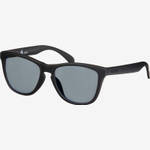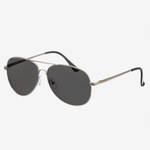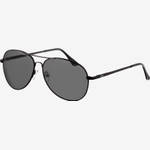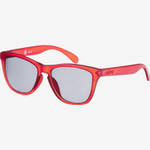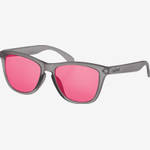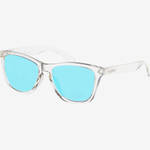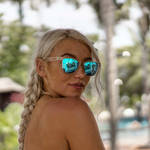What distinguishes good sunglasses
What do I have to watch out for with sunglasses? How can I estimate the quality of them? In this article we would like to go into details that can be a guide for your decision. Legal aspects as well as personal taste play a role here.
The most important recognition features
In summary here are the most important questions you should be able to answer with "Yes", so that the sunglasses are as safe as possible.
- Is a CE marking affixed to the product?
- Is the filter category (Cat. 0 to Cat. 4) of the glasses and an explanation of the categories given for differentiation (e.g. in tabular form) ?
- Is the manufacturer or an authorised representative within the EU indicated with his address?
- Are safety instructions such as: "Not for direct sunlight" available? Are glasses of category 4 indicated to be unfit for traffic?
- Has the manufacturer given cleaning and care instructions ?
- Is the filter category suitable for the type of your use?
- Are the lenses polarizing, and if so, is that an advantage or disadvantage for your purposes?
- Is the sunglasses large enough to cover your field of vision or do sunrays enter your eyes from the side or from above?
- Is the wearing comfort good and does the sunglasses make a visually high-quality impression ?
- If you want sunglasses with your eyesight Is it possible to have the lenses replaced by your own optician?
The CE mark as proof of quality and safety
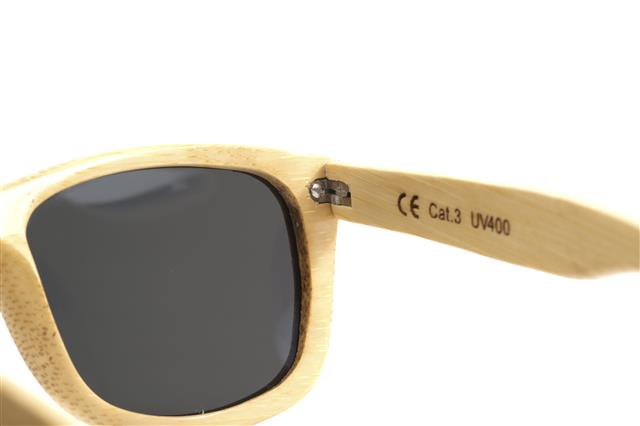
What makes good sunglasses? As personal protective equipment (PPE), sunglasses are subject to the European Directive 89/686/EEC, which is specified in the standard DIN EN ISO 12312-1:2013. By affixing the CE mark, the manufacturer declares the fundamental conformity of his sunglasses with the requirements of this directive. Contrary to what is often assumed, the CE mark in this case does not express an inspection by a state or independent body. Nevertheless, the manufacturer is obliged to adhere to these safety standards and to prove conformity by affixing the mark. If the mark is applied incorrectly because parts of the standard are not met, the authorities can withdraw the sunglasses from the market. Nebelkind has its lenses regularly checked for tinting and UV protection by local opticians in order to ensure permanent safety from solar radiation. In addition to these qualitative properties, the directive requires the manufacturer to provide the name and address of himself or of a responsible person within the EU. In the absence of this information, it is advisable to keep your fingers off your glasses.
UV-protection of sunglasses - what has to be considered ?
First of all, sunglasses should protect the eyes from harmful UV-A, UV-B and UV-C up to 380 nm radiation. A useful reminder: whenever you put on sunglasses, you should also protect your skin with sunscreen. The CE mark proves that this protection is fulfilled. In addition, Nebelkind sunglasses offer UV400 protection, a protection against UV radiation up to 400 nm that goes beyond UV-A protection.
The tint of the lenses - no indication of UV protection
Contrary to common belief, the tint or absorption of sunglasses does not indicate the level of UV protection. Even lightly tinted sunglasses must provide full UV protection. Rather, the tinting regulates the different areas of application of a pair of glasses. For this purpose, they are divided into the filter categories 0 to 4, as Table 1 shows.
| Filter category | Description |
|---|---|
| 0 | very light to light tinting; |
| 1 | |
| 2 | general use; medium to dark tint |
| 3 | |
| 4 | very dark tint; special use; for strong solar radiation in snow, in the mountains or at the water; not suitable for road traffic |
Serious manufacturers reproduce this or a similar table on the inserts of their sunglasses to show the limits of the use of your sunglasses. Nebelkind uses the filter category 3 for sunglasses unless otherwise indicated on the product.
Safety instructions as a quality feature

The existing safety instructions show how much a manufacturer has dealt with his product and how important transparency towards the customer is for him. For example, it is mandatory to indicate that sunglasses are not suitable for direct exposure to the sun. Furthermore, sunglasses should not be used for night driving. Other indications such as "No protection for mechanical hazards" or "No protection against artificial light sources" give you additional indications of the limitations of sunglasses. These are valid regardless of whether or not the instructions are appropriate. Sunglasses of category 4 are also not roadworthy, the manufacturer should not conceal this. Existing safety instructions are a first indication of the quality of your sunglasses and the seriousness of the manufacturer. If you are interested in lenses that change the colour of your vision, you should also pay attention to information that excludes roadworthiness due to the colour distortion of light signals in traffic. This is especially true for sunglasses that change their colour to something other than a brownish or greyish change.
Polarizing Glasses - Blessing or Curse?
What are polarizing sunglasses? For general use and for driving, polarizing lenses are a gift. They filter reflected light and eliminate interference. You have a clearer view and are not dazzled. The lenses of the Nebelkind sunglasses are polarizing, this is also marked on the product.
Nightly polarizing lenses can be disadvantageous for winter sports or moror cycling. This is because the reflected light filters out important details of the ground. The assessment of wetness on the ground, potholes or small hills, and dips in the snow is made difficult or even impossible. Especially with fast sports this can be dangerous. For these applications you should look for specialized sunglasses that meet the requirements of the sport. For everyday use, however, polarizing lenses are advantageous.
You have further questions about the quality of our sunglasses? Just send us an email to info@nebelkind.com!

